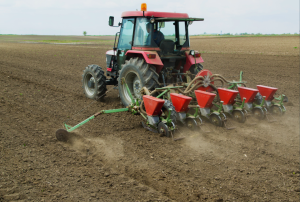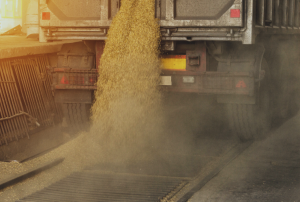As we enter 2025, agriculture continues to evolve, and supply chain management faces new challenges shifting regulations to climate change and technological disruptions. Businesses in the agricultural sector must adapt to stay competitive. Understanding these challenges is the first step toward overcoming them, and that’s where digital solutions come in.
The Key Challenges Facing Agri Supply Chains in 2025
1. Data Fragmentation and Lack of Real-Time Insights
Many agricultural businesses still rely on disconnected systems and manual processes, making accessing real-time supply chain data difficult. Without seamless data sharing, inefficiencies arise, impacting decision-making and operational performance.
Solution:
- Integrated digital platforms like AgriChain provide a single source of truth, ensuring that all stakeholders have real-time access to critical data.
- Automation and AI-driven analytics enable predictive decision-making, helping businesses optimise their supply chain operations.
2. Regulatory Compliance and Traceability
Governments and industry bodies are increasing regulations around product traceability, food safety, and sustainability. Keeping up with evolving compliance standards is becoming more complex, requiring accurate record-keeping and transparent reporting.
Solution:
- Blockchain-powered digital traceability systems help businesses maintain immutable records, ensuring compliance and reducing risks.
- Automated tracking of supply chain data simplifies audits and reporting, saving time and reducing errors.
3. Logistics and Transportation Bottlenecks
Unpredictable delays, high fuel costs, and inefficiencies in agricultural transportation networks disrupt supply chains, increasing costs and food waste.
Solution:
- Real-time logistics tracking enables businesses to optimise transportation routes and reduce transit times.
- Automated scheduling and inventory management improve logistics efficiency and minimise disruptions.
4. Sustainability Pressures and Carbon Footprint Reduction
With the growing emphasis on sustainability, businesses must adopt greener supply chain practices. Reducing carbon emissions and minimising waste are key priorities for regulatory compliance and consumer expectations.
Solution:
- Implementing data-driven sustainability measures helps monitor and reduce emissions across the supply chain.
- Digital tracking tools ensure efficient resource allocation, reducing waste and optimising energy usage.
How AgriChain is Solving These Challenges
AgriChain provides a comprehensive supply chain management solution that addresses these challenges through:
- Real-time data integration for transparency and efficiency.
- Blockchain-backed traceability to ensure regulatory compliance.
- AI-powered analytics to optimise logistics and operations.
- Sustainability tracking tools to help businesses meet green targets.
As agricultural businesses navigate 2025, embracing digital transformation is key to staying competitive. By leveraging solutions like AgriChain, companies can mitigate risks, enhance efficiency, and build a more resilient supply chain.
Want to future-proof your operations? Learn how AgriChain can help your business thrive. Book a FREE trial or demo today, https://agrichain.com/get-in-











